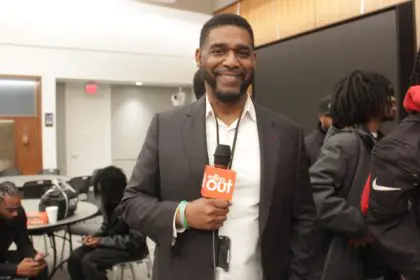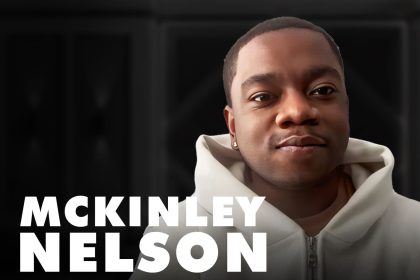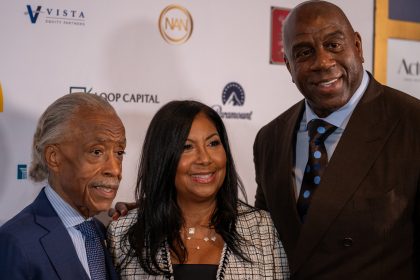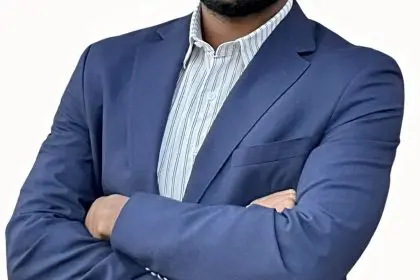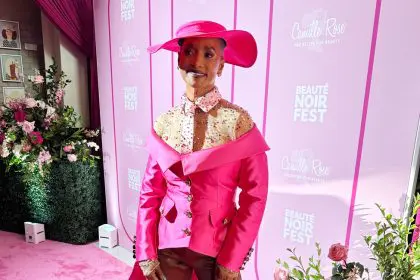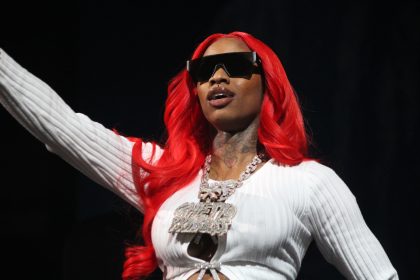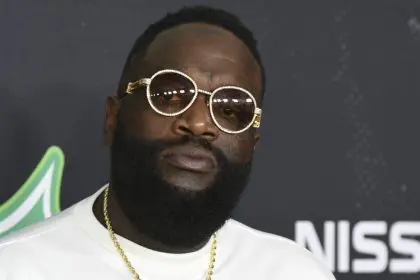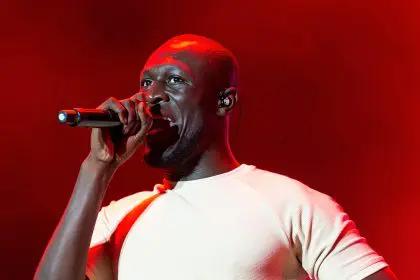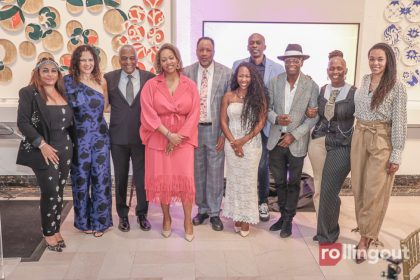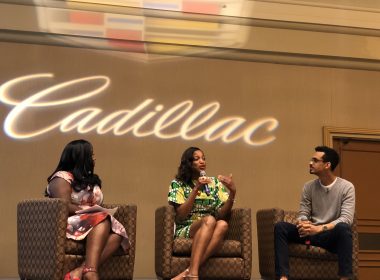
America was first introduced to Ameena Matthews in the Emmy Award-winning documentary “The Interrupters” in 2011. The film followed three violence interrupters over the course of a year and their journey to protect their Chicago communities from the violence they once engaged in. Employed by the organization Ceasefire, the interrupters used their street cred to stop conflict before it escalated into foul play. Viewers fell in love with Matthews as she fearlessly maneuvered through one of Chicago’s most dangerous neighborhoods to end violence and instill a sense of respect and responsibility in our youth and everyone she came in contact with.
Matthews grew up in a tight-knit family in Chicago. She was raised by her grandmother and is the daughter of Jeff Fort, who has been labeled by the media as a notorious gang leader, the co-founder of the Black P. Stones gang, and founder of its El Rukn clique.
At the age of 15, Matthews left home and took care of herself by selling drugs. After over 15 years of navigating the ups and downs of that lifestyle, she decided to make a change and embrace a life steeped in spirituality and making a difference in her community. She married Shaykh Dr. Abdur Rashied Matthews, leader of a Muslim community on the South Side of Chicago and together they had a daughter. Matthews has two sons from previous relationships.
In 2006, Matthews received a call from Tio Hardiman. At the time he was the Executive Director of Ceasefire. He heard about her on the streets and felt she would be an excellent candidate to help interrupt violence. And she was. Tio Hardiman shared, “There was no conflict at any given time that was too big for Ameena to handle. She would go out there and get in the face of some of the toughest guys in Chicago and work things out. At the same time, I never met anyone that had such a passion for the work. I used to call her the 21st century Harriet Tubman.”
So what has life been like for Ameena Matthews after “The Interrupters”? Her hard work did not go unnoticed. In addition to her popular interview on “The Colbert Report,” Matthews has been interviewed by NPR, USA Today, New York Times, Chicago Tribune, Chicago Sun-Times, Jet, CNN, BBC, “Frontline,” HLN and more. She also received the TedX Midwest Heroes Award presented by Illinois’ Gov. Quinn, the 2011 Chicagoan of the Year, The Community Activist Award from Black Girls Rock, and The 2013 Freedom for Fear Award (past recipients include Presidents Harry Truman, Jimmy Carter, and Bill Clinton, Senator Ted Kennedy, Secretary Hillary Clinton, Nelson Mandela, and the Dalai Lama). Matthews was also given an Emmy for “The Interrupters.”
In 2013, Matthews was diagnosed with multiple myeloma — a rare blood cancer. Rolling out sat down with her to talk about life since “The Interrupters.”
What does life look like for you now?
I’m pretty much where I have always been. Still in the streets making sure our young people are educated about how our history has set up our present. There are a lot of things that have happened in our city and nation that are unacceptable. I’m not trying to go after the perpetrators and hunt them down and let them know they have done wrong. I want to educate our young people on how their actions will get them hunted down.
These days I am doing the same work on a national level. I speak and coach. I have mentoring programs in our community and our schools. With my community, I have a food pantry called Protector of the Bread that operates on Saturday.
I am also in a learning process in my life about who and whose I am. God continuously shows me humbly and mercifully who I am and for that I am grateful.
What was life like for you prior to becoming an activist?
I can say it was a hot mess now [laughs]. At 15, I was on my own. I did a lot of things to myself thinking I was getting back at family that I thought should have fought for me like a lion. I was raised by my grandmother and with an aunt that was 7 years older. My grandmother, Madea had my back. She taught me entrepreneurship and life skills. Around 13 or 14, I started noticing my surroundings and that in the streets everyone had lanes. I saw there was the pimp game, the dope game, and the stick up boys. At 16, I became a bartender and I was meeting people that would protect the community but still get money from the community. So I got in. I wanted to get money so I could get my grandmother a house. Looking back on the game, I thought I chose it but it really chose me.
You were recently diagnosed with cancer. Tell us about that journey.
I kept my diagnosis on the down low because I didn’t want anyone to focus on me instead of what the issues really are. If I’m off the front line, someone needs to step up on the front line and advocate for our people and our young guys in and out of the schools. I found out I had 30 days to live. I was going to an oncologist and this doctor appeared in his office out of nowhere and said he was doing a new study at the Cancer Center in Oakbrook and needed some candidates. I went to see him and he did a whole work up and discovered I had multiple myeloma, a blood cancer. He also saw that it had become aggressive. I went through a long process. I had chemo, some blood marrow work, and had to produce stem cells. At one point, they connected a 3 prong piece that looked like a cable wire to my heart. I used to joke and say if you need free cable, I’ll come and hook you up. It was hard to for me to look in the mirror… Where am I now? I’m in a much better place. My boots are strapped and I am ready to go.
What have been some of your most exciting experiences since the documentary?
Taking my children to the Sundance Film Festival was amazing. I have been able to travel the world. I traveled to London and spoke at the UN, went to Stockholm Switzerland, experienced the TED program in Turkey and Cypress in Greece. I taped Being Mary Jane. I’ve done work in Memphis, St. Louis, Florida, Albany, California, Oakland, Denver, and Wyoming. I have met some great people. Oh, and also the media coverage.
What talents or gifts have emerged on your journey?
Interacting with people. I love people and their heart. I also love looking into their soul through their eyes.
Why do you feel the violence in Chicago has gotten to where it is now?
These guys are on the defense. They feel the police are treating them like they are not human. Some of these guys don’t have fathers. The mayor was saying the parents need to step up. They may be in the penitentiary or dead. Just because someone is a parent doesn’t mean they know how to parent. It takes a village.
What is next for you?
I am working to create a foundation and non-profit to continue the fundamentals of training to give our youth the resources to get life skills, decrease violence, and learn conflict resolution skills.
More facts about Ameena Matthews
During the interview, we got a chance to learn a few things about Ameena. Her favorite foods are salmon and cheese. She leads a Girl Scout troop. She believes everyone should have a passport. In her car she is bumping Phil Collins, Simply Red, Sade, James Taylor, and Seal. And for all of my Chicagoans, she is a house head.
Ameena’s organization Pause For Peace is working with students in the community and public schools. She recently taped an episode of Being Mary Jane. Look for it in the fall.
Although Ameena is on the path to total recovery, she is still healing. Her community set up a gofundme account to help with medical bills. So far, they have collected over $80,000. If you would like to donate, go to https://www.gofundme.com/Protector.


